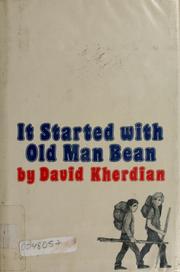 Set in the year 2151 the world enjoys freedom except for one "black spot on the map" which is the "walled-city of Berlin." Except it's not just a massive concrete wall that protects Berlin but a roof, too! 300 million Germans live underground in an enormous fortified city of 60 levels. And in spite of continuous bombing campaigns, the German invention of a death ray has protected them from invasion ever since the end of the First World War. Meanwhile, an American chemist named Lyman de Forrest (who speaks German and has had an interest in Germany since his youth) develops a technology to reclaim the abandoned potash mines of Stassfurt, perilously close to Berlin. But while exploring he discovers a way into a nearby German mine, and accidentally becomes trapped. By coincidence, however, he finds a dead German who looks surprisingly like him. Even more fortunately, the man was a chemical engineer and Forrest is able to assume the identity of Karl Armstadt.
Set in the year 2151 the world enjoys freedom except for one "black spot on the map" which is the "walled-city of Berlin." Except it's not just a massive concrete wall that protects Berlin but a roof, too! 300 million Germans live underground in an enormous fortified city of 60 levels. And in spite of continuous bombing campaigns, the German invention of a death ray has protected them from invasion ever since the end of the First World War. Meanwhile, an American chemist named Lyman de Forrest (who speaks German and has had an interest in Germany since his youth) develops a technology to reclaim the abandoned potash mines of Stassfurt, perilously close to Berlin. But while exploring he discovers a way into a nearby German mine, and accidentally becomes trapped. By coincidence, however, he finds a dead German who looks surprisingly like him. Even more fortunately, the man was a chemical engineer and Forrest is able to assume the identity of Karl Armstadt.Yes, this book was a free Kindle download. Yes, I know it sounds pretty bad. And honestly, reading it felt about as enlightening (and embarrassing) as watching reality television. But eventually it turned into a rather intriguing novel where "Karl" is trying to figure out what's going on and fit in. His position gives him some privileges and he learns how the city functions on a practical as well as social basis, and this is where it got interesting (and I stopped feeling embarrassed about reading it).
Remember, this was written in 1919 – less than a year after the end of WWI – and yet it comes uncomfortably close to predicting many of the conditions that subsequently happened under the Nazis. It describes a government of "autocratic socialism" which closely controls not only the press but education and even the diets of its citizens, where calories are doled out based on labor position. More chilling, however, is the idea of racial superiority based on Teutonic blood, and science and eugenic breeding becomes the central feature of German society. History and religion are rewritten in ways frighteningly similar to what Hitler's propaganda machine created. Even anti-Semitism comes up! And those aspects that didn't match Germany came closer to events in the Soviet Union.
Now, don't get me wrong: I'm not saying Hastings was some sort of prophet. A number of the parallels seem merely coincidental or even forced: the intense WWII bombing of Berlin; the Berlin Wall; even a Second World War against Germany. But it surprises me how many aspects where he was actually pretty close, and I wonder how he guessed so well. Probably he was just lucky, or perhaps fears of what eventually came to pass were already shared by some or many at the time – I'm just not familiar enough with the world mindset at the end of WWI. Would I recommend this book? Yeah, if you like reading old sci-fi novels you might find it interesting like I did. At any rate, it turned out much better than I expected and lasted longer than Weeniwinks.






